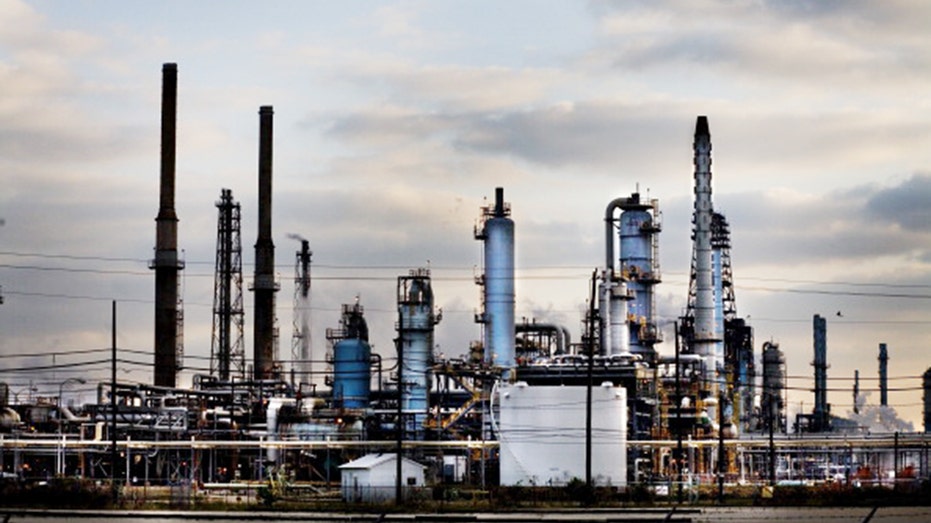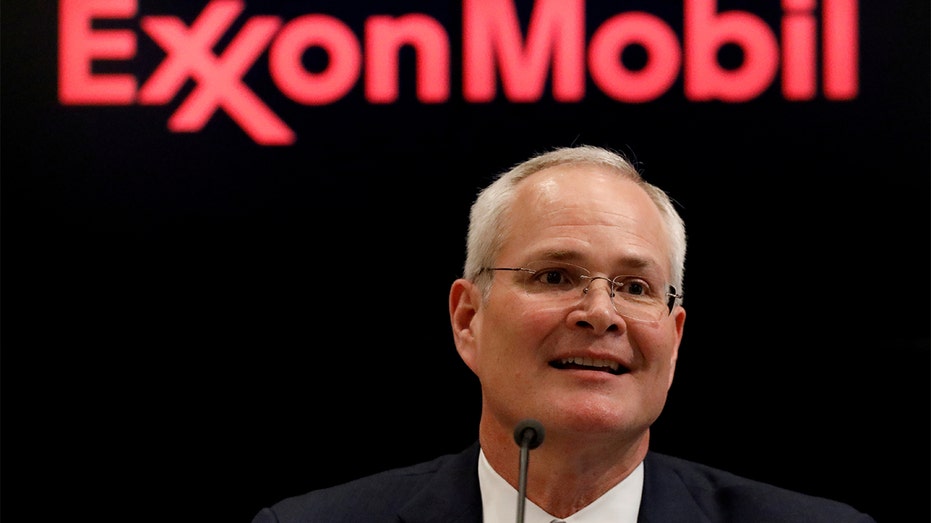Exxon quits drilling in Brazil after failing to find oil
Oil giant has spent billions on the offshore campaign and hasn’t ruled out other projects in the country.
GasBuddy analyst reports some states seeing 20 to 30-cent bumps at the pump
GasBuddy head of petroleum analysis Patrick De Haan warns retail gas prices will 'accelerate' in a few days due to OPEC's surprise cuts.
Exxon Mobil Corp. has ended a major campaign to find oil in Brazil, after coming up empty-handed on a multibillion-dollar wager that produced a series of disappointing wells, according to people familiar with the matter.
After failing for the third time to find commercially viable amounts of crude in Brazil’s deep waters last year, the Texas oil giant has stopped its current drilling efforts in the offshore acreage it started snapping up with partners for $4 billion in 2017, these people said.
| Ticker | Security | Last | Change | Change % |
|---|---|---|---|---|
| XOM | EXXON MOBIL CORP. | 149.05 | +2.97 | +2.03% |
The company has shifted geologists and engineers who had worked on the years long drilling campaign from its offices in Rio de Janeiro to other countries including Guyana, Angola and Canada, they said. It hasn’t put out tenders to drilling contractors for exploratory work there in the year since its last active rig contract expired in April 2022, analysts said, and it skipped Brazil’s latest offshore auction in December.

The Baytown Exxon gas refinery in the United States. (Photo by Benjamin Lowy/Reportage by Getty Images) (Benjamin Lowy/Reportage by Getty Images) / Getty Images)
Exxon’s moves to dismantle its recent drilling campaign in Brazil mark a major setback in a country that it has promoted for years as a key source of growth.
GAS PRICES WILL SURGE IN COMING WEEKS AFTER OPEC CUTS PRODUCTION, ANALYSTS SAY
In December, Exxon Chief Executive Darren Woods pointed to Brazil as one of its major "growth opportunities" and part of its portfolio of low-cost supply developments, alongside Guyana, the Permian Basin of West Texas, and New Mexico, and exports of liquefied natural gas.
Exxon hasn’t ruled out future projects in Brazil, people familiar with the matter said. Michelle Gray, a spokeswoman for Exxon, said the company is still engaged in Brazil and continues to pursue exploration activity in the country.
"Our initial exploration drilling program in Brazil is now complete," Ms. Gray said. "We continue to work with our co-venturers to analyze the data acquired from the extensive drilling program to assess the potential for future exploration activities in those blocks."

Exxon Mobil CEO Darren Woods speaks during a news conference at the New York Stock Exchange in New York. (REUTERS/Brendan McDermid/File Photo / Reuters Photos)
Irving, Texas-based Exxon re-entered Brazil six years ago, with high hopes it could repeat the successes other drillers had in Brazil’s offshore geological formations more than a decade ago. Brazil has become one of a dwindling number of places around the world where large oil companies still spend money to search for oil. Despite some companies’ recent struggles to find oil there, Brazil is currently the hottest market for offshore drilling rigs, led by government-owned Petrobras.
Exxon has said it plans to spend most of its annual capital budget of up to $25 billion in the Americas this year, including in Brazil, a focus on the Western Hemisphere that reflects the company’s priority to growing shareholder returns and cutting costly frontier-drilling projects.
PREPARE FOR GAS PRICE BUMPS AT THE PUMP IN 'THE NEXT FEW DAYS,' GASBUDDY ANALYST WARNS
Exxon has a minority stake in a separate offshore project in Brazil led by Equinor, called Bacalhau, that is moving forward. The companies authorized the first phase of the project in 2021 and expect it to come online in 2025, pumping some 220,000 barrels a day.
Last year, Exxon sold or proposed to sell assets in Chad, Cameroon, Egypt, Iraq and Nigeria, along with some legacy assets in the U.S. and Canada, making for its largest number of such sales since 2018, according to FactSet. The company had planned since 2018 to sell at least $15 billion worth of assets as it pared down its global footprint and focused on its most valuable assets.

Working oil rig on the coast. (iStock / iStock)
In 2021, Exxon drilled two wells in Brazil’s Campos and Santos basins. Last year, it drilled a third in the Sergipe-Alagoas basin. None of the three wells off Brazil had enough oil to be commercially viable.
The failure stands in contrast with its success in Brazil’s neighbor, Guyana, where it has found decades worth of oil in recent years. Exxon has six drilling rigs working in Guyana and is expected to pick up more contracts there in coming months, analysts said.
Exxon also deployed a drill-ship to Angola last year, and that rig is working on a two-year contract, marking Exxon’s first exploration efforts in the West African country since 2018, according to drilling-rig tracker RigLogix. The drill-ship began work a few months after Exxon drilled the underperforming well in Brazil.
"There was a lot of hope for what Brazil could have been. Exxon doesn’t do well" with multiple noncommercial wells, said Schreiner Parker, an analyst at Rystad Energy. He said the company is asking itself, "‘Do we want to keep throwing good money after bad?’"
Those deep-water wells off Brazil cost between an estimated $100 million and $150 million, typically, according to energy consultant Wood Mackenzie. Exxon and its partners in the Sergipe-Alagoas region don’t have any exploratory wells in that region scheduled for 2023, one of the partners, Brazilian oil company Enauta Participacoes SA, said in November.
Other Western oil companies have also struggled to make commercial discoveries in recent years, but Exxon’s peers Shell PLC, BP PLC and TotalEnergies SE are continuing to drill in Brazil, said Marcelo de Assis, an analyst at Wood Mackenzie.
| Ticker | Security | Last | Change | Change % |
|---|---|---|---|---|
| SHEL | SHELL PLC | 77.78 | +2.50 | +3.31% |
| BP | BP PLC | 39.01 | +0.84 | +2.20% |
| TTE | TOTALENERGIES SE | 74.73 | +0.91 | +1.23% |
"Exxon, like most of the [integrated oil companies] entering Brazil, had very positive expectations," he said. "Most of the companies have had bad results in exploration."
Exxon hasn’t had active drilling rigs working in Brazil since last year and hasn’t put out any tenders for exploratory work, according to RigLogix. The earliest it might be able to add a rig in Brazil in its current acreage is in mid-2024, said Terry Childs, head of RigLogix, which is part of the Westwood Global Energy Group.
GET FOX BUSINESS ON THE GO BY CLICKING HERE
Still, Exxon would consider drilling in the equatorial margin off northern Brazil, far from its current leases further south, people familiar with the matter said. Petrobras is currently waiting to receive permission to drill in the region—deemed an environmentally sensitive area—from Brazil’s environmental regulator, which has held up drilling permits in the area for years, analysts said.
For now, Exxon is expected to continue focusing primarily on Guyana and the Permian.




















